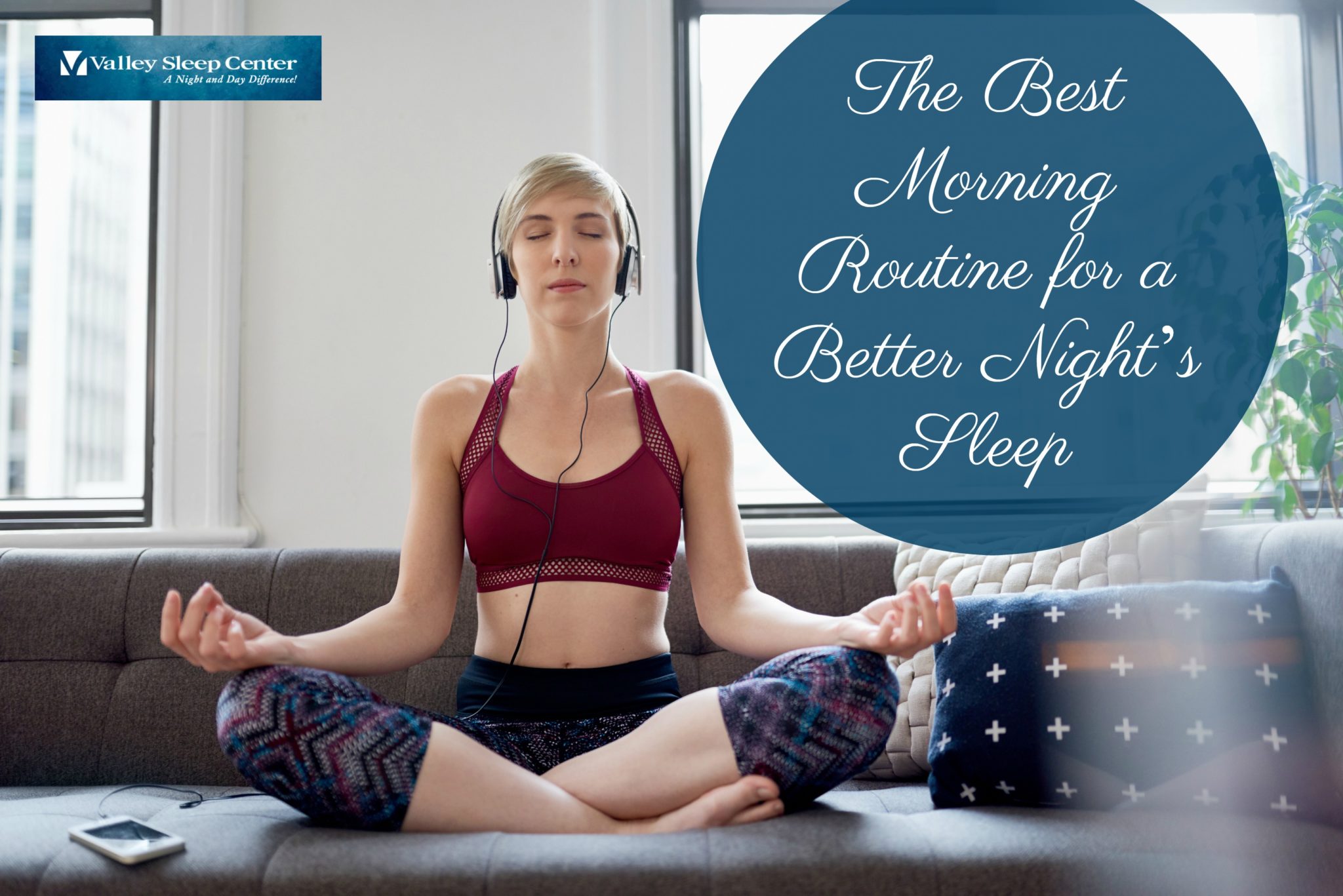By Lauri Leadley

Lauri Leadley, Clinical Sleep Educator, President of Valley Sleep Center
When you think about sleeping better at night, it is easy just to focus on what you should do right before bedtime. But the things that you do immediately after waking up are also impacting the quality of your sleep. When you wake up in the morning, your brain goes through a stage called sleep inertia that can last for up to 30 minutes. This is the period where your brain switches from sleep mode to being fully awake and alert. Practicing a healthy routine from the time you wake up will help your body manage its biological clock. This biological system regulates your feelings of wakefulness and sleepiness over a 24-hour period. Here is the best morning routine for a better night’s sleep.

- Do some deep breathing exercises. Doing this right after getting out of bed will oxygenate and wake up the brain while relaxing the body. Make sure that you are seated comfortably in an upright posture. Perform the following belly breathing practice for up to 10 minutes.
- Relax your abdominal muscles and place one hand on your belly.
- Inhale slowly through the nose and draw air into the bottom of your lungs. You will feel the abdomen fill up with air.
- At the end of this inhale, feel the ribs expand outward as the breath moves upwards to the collar bone.
- Hold the breath for a few seconds, and then gently exhale out of the mouth from the top of your lungs to the bottom.
- As you finish exhaling, draw your belly inwards, pushing any last bits of air out of the bottom of the lungs.
- Do some exercise. The morning is the best time to exercise. It will give you an increase in energy and metabolism throughout the day. Just choose something that is best for you based on your age, body type, and overall fitness level. Here are some great exercise options based on level of intensity that you can do for up to 15 minutes every morning.
- Kundalini yoga (low intensity). This yoga practice combines gentle movements and stretches with deep and powerful breathing exercises. Powerful breathing can help relieve muscle tension and increase oxygen supply to the bloodstream. Kundalini yoga also involves chanting to awaken the body and stimulate the vagus nerve. This nerve helps regulate your parasympathetic nervous system, which reduces daily stress and anxiety.
- Standing squats (medium intensity). Spread your feet more than hip distance apart with your toes turned outward. Then bend your knees and let your hips sink to the floor without leaning forward. Quickly repeat this movement 20 to 25 times while deep breathing. Rest for 1 minute and repeat the entire set of exercises 2 more times.
- Full body workout (high intensity). If you are a fitness buff, do a rigorous morning workout that does not use any equipment. This should include exercises for both cardio fitness and improved muscle strength.
- Eat a healthy breakfast. After you have finished your deep breathing and body exercises, it is time to eat breakfast. You want to choose foods that will give your body the right nutrition to ensure productivity throughout the day. Some great breakfast choices are pure organic yogurt, fresh fruits and berries, nuts and seeds, and homemade granola or whole grain cereals. If you drink coffee, now is the best time, and try not to consume caffeinated beverages anytime after noon.
Getting proper sleep both in duration and quality is critical for all aspects of your health and well-being. Following a regular morning routine will help you feel great throughout the day and get a better night’s sleep. If you are having any persistent sleep-related problems or think that you might suffer from a sleep disorder, you should talk to a sleep therapy specialist.
Valley Sleep Center – We Can Help You Sleep Better!
Our clinic provides comprehensive sleep management including sleep diagnostics, diagnosis and treatment of sleep disorders. Our board of certified sleep specialists include knowledgeable physicians and nurse practitioners. For a consultation just contact us here or give us a call at (480) 830-3900.

